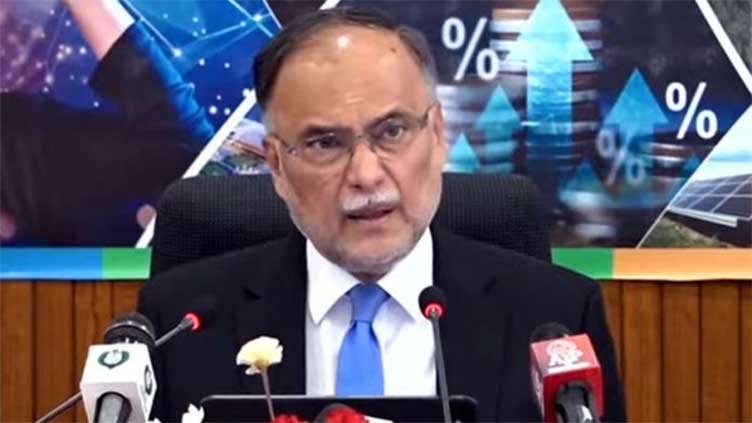Funds for provinces may be linked to population control

Business
Minister says population remains an overwhelming factor in determining provincial allocations
ISLAMABAD (Web Desk) - Planning ministry will propose changes to the National Finance Commission (NFC) Award — a constitutional formula that governs how tax revenues are shared between the federal government and provinces — in an effort to reward regions that manage to control population growth, Planning Minister Ahsan Iqbal said on Thursday.
The proposed reform would shift financial incentives away from population size alone and toward demographic efficiency.
Under the existing NFC Award, 57.5 percent of the divisible tax pool is allocated to Pakistan’s four provinces of Punjab, Sindh, Khyber Pakhtunkhwa and Balochistan. Of this, 82 percent is distributed based on population size, effectively rewarding provinces like Punjab and Sindh that have higher population growth.
“In the next NFC Award, the Planning Ministry will propose a revision of the resource distribution formula,” Iqbal told reporters during a briefing on Pakistan’s development budget for the upcoming fiscal year.
The NFC Award remains a politically sensitive subject in Pakistan, with provinces often reluctant to surrender financial shares. However, Iqbal said reform was essential for sustainable development.
The current NFC Award was agreed in 2010 under Article 160 of the Constitution, which requires periodic review and consensus among the federal and provincial governments. The 2010 award introduced a more balanced distribution formula than previous iterations, which were based solely on population. It included additional criteria such as poverty and backwardness (10.3 percent), revenue collection and generation (5 percent), and inverse population density (2.7 percent).
Despite these adjustments, Iqbal argued that population remained an overwhelming factor in determining provincial allocations and discouraged provinces from investing in family planning or demographic control measures.
“We must shift toward incentivizing demographic efficiency, rewarding provinces that control population growth effectively,” he said.
“This change is only possible through a revised NFC formula, as in my view, the current formula is regressive and needs to be restructured on a progressive basis, linking resource allocation not just to population but also to factors like industrial performance, educational outcomes, and governance efficiency.”
Iqbal described Pakistan’s current 2.5 percent annual population growth rate as “the biggest challenge” facing the country and said that without effective population control, economic development efforts would be undermined.
To address the issue at the national level, Iqbal said the government would establish a Pakistan Population Council chaired by Prime Minister Shehbaz Sharif, with participation from provincial and regional governments.


